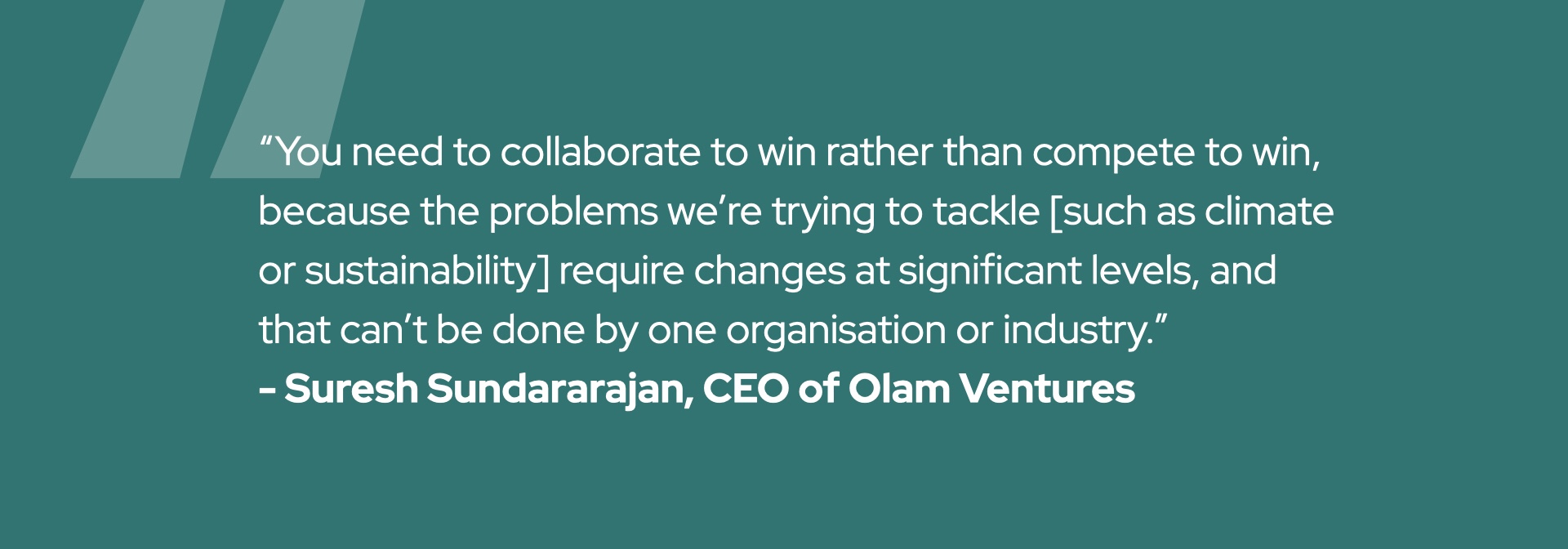Globally, the market for impact is large and growing. In Asia, there is a significant opportunity and need for impact action, from empowering the hundreds of millions of micro-, small-, and medium-sized enterprises (MSMEs) and smallholder farmers regionally, to developing a roadmap for a just climate transition and providing goods and services to a growing population of first-time consumers.
Asia offers a unique opportunity to deliver impact at scale. New technology and digitally-enabled business models enable products and services to be accessed by a large population with rising purchasing power and heightening social and environmental awareness. The relatively young population also represents a fast-growing pool of socially and environmentally conscious entrepreneurial talent. These positive dynamics, combined with the region’s underlying cultural values, create conditions highly conducive for driving impact in Asia.
To foster impact investing and practices in Asia and beyond, the Centre for Impact Investing and Practices (CIIP) - the first of its kind in Asia - was launched by Temasek Trust in June 2022.
“CIIP will seek to build knowledge assets and enhance capabilities, champion credible and practical industry standards, and convene stakeholders to collectively bring about the benefits of impact investing,” said Dawn Chan, CEO of the CIIP. Furthermore, to accelerate the development of digital innovation to address the SDGs, she reiterated the need for all forms of capital - “Venture philanthropy, blended finance, and impact investments have key roles to play as technologies and ventures evolve. Different funding solutions will be required at each stage.”
Collaborating for Impact
During a panel on bringing impact to life at the CIIP launch event, Suresh Sundararajan, CEO of Olam Ventures, called for deeper collaboration among all stakeholders – “You need to collaborate to win rather than compete to win, because the problems we’re trying to tackle [such as climate or sustainability] require changes at significant levels, and that can’t be done by one organisation or industry.”

Vivi Yulaswati, Senior Advisor to the Minister of National Development Planning for Social Affairs and Poverty Reduction, and Head of National Secretariat for SDGs, Ministry of National Development Planning Indonesia/Bappenas, stated that the focus is not only on identifying challenges, but also in seeking potential collaboration opportunities with stakeholders beyond the government. Such collaboration is needed to increase the impact, find new ways to enhance and scale up the enabling environment, and incentivise any sustainable projects that are still fairly limited and fragmented in terms of scale, she shared.
Calling for Greater Clarity
However, challenges such as a lack of transparency, supply chain inefficiencies, and information gaps create barriers to sustainable investments. As Asia’s impact industry is still nascent, there is a need for more clarity and knowledge-sharing.
During a panel on Asia’s impact landscape and opportunities, Ramraj Pai, CEO of Impact Investors Council of India, highlighted the need to develop a means for investors to transition into the impact space: “How do we build a robust framework, along with the appropriate guardrails in terms of impact management and measurement standards?”
“Impact must be evidence-based,” said Tan Shao Ming, Chief Investment Officer at Temasek-backed private equity firm ABC Impact. “We need to be able to track and measure impact KPIs, just like how you measure business and financial KPIs – because only with this tracking can we continue to improve the impact that the company is delivering to society or to the environment.”
In addition, both negative and positive impact must be systematically and continuously monitored and measured. “Clear evidence of outcomes will help mobilise more diverse and innovative forms of capital to further scale impact,” said Dawn Chan, CEO of CIIP.

Connecting the Dots
Enhancing the sharing and dissemination of knowledge and information will go a long way in helping investors and companies make better decisions aligned with their impact strategies.
As a non-profit centre dedicated to impact investing and SDG Impact’s anchor partner in Asia, CIIP will collaborate closely with various stakeholders – such as investors, companies, the Global Impact Investing Network and UNDP – to build the impact ecosystem.
It aims to develop resources to close knowledge and information gaps, and help spur the growth of more effective and innovative solutions towards SDG goals. Its inaugural report, “Scaling Impact in Asia: Achieving Purpose and Profit”, developed in collaboration with Accenture and Singapore Management University, uncovers a plethora of opportunities to drive impact in Asia, and broadens the existing scope of research by providing insightful case studies from on-the-ground practitioners.
Visit CIIP’s website to find out more about impact investing and practices, and access practical tools and resources to inspire your own impact journey. Follow CIIP on LinkedIn for its latest updates.



